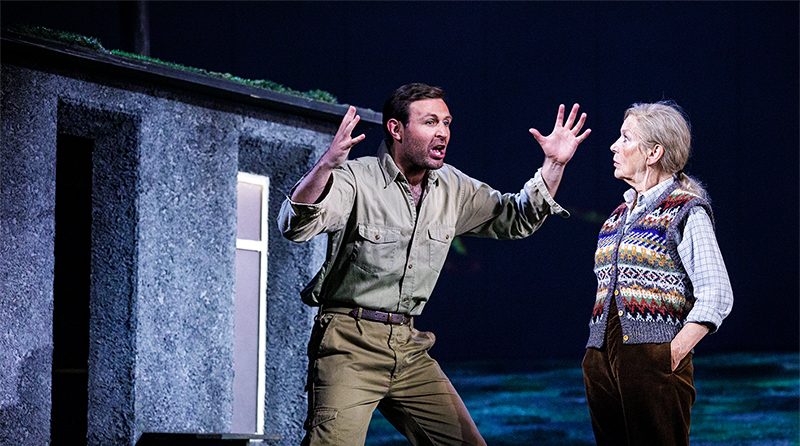Performing to a Scottish audience will be a welcome relief for the cast of Peter Gynt. Following the backlash of Quentin Letts’s review complaining of ‘whining Scottish accents’, David Hare’s reimagining of Ibsen’s classic feels far more at home in Edinburgh’s Festival Theatre.
In this adaptation, James McArdle plays Peter, an energetic 21-year-old with a penchant for fibbing. We see him grow and change throughout his life, influenced by the many wondrous things that happen to him. The greatest strength of the show is McArdle. In his powerhouse performance, Trumpian twitches and unremitting smarm make way for bitterness, guilt and misery. Anya Cholatra plays his love interest, Sabine, whose skilful performance and beautiful voice are wasted on her thinly-written character.
In the original, the character of Peer tells all his lies based on Norwegian folklore. Here, his lies are derived from movies, and all of his spectacular claims about his adventures and expeditions can be traced back to some Hollywood blockbuster. For the first half an hour, this makes for pretty entertaining viewing; the character is so delusional about his own grandeur that he is repulsive but impossible to look away from. It is when things start to move away from reality, and drift into the realm of troll kings, clones, and the devil dressed as a priest, that the play loses focus. The disconnect between the fantastical and the real is jarring, creating a world which fails to establish its rules and so becomes difficult for the audience to negotiate and understand.
That’s not to say that the writing lets down the whole production. In fact, the dialogue is outstanding. The scathing Scottish cynicism is complemented with juicy philosophical quotes such as ‘No-one falls in love with a person, they fall in love with the idea of that person’ and ‘Heaven and hell are for people who make a difference, everyone else is recycled’. The running themes of mortality, fantasy and hubris are all well developed, resulting in a profound final act. Nevertheless, for the bulk of the run time, it is a mishmash of tones and myths. It comes off like a vanity project from a writer using the source material as a springboard for snappy dialogue.
